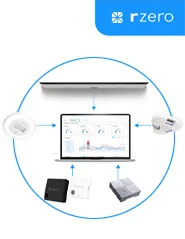Upper Room UVGI:
Gain 5x the savings while increasing building productivity by 20%.
Unmatched ROI
Significantly reduce energy use, HVAC spend, and labor costs. Minimize facility overhead with optimized space usage.
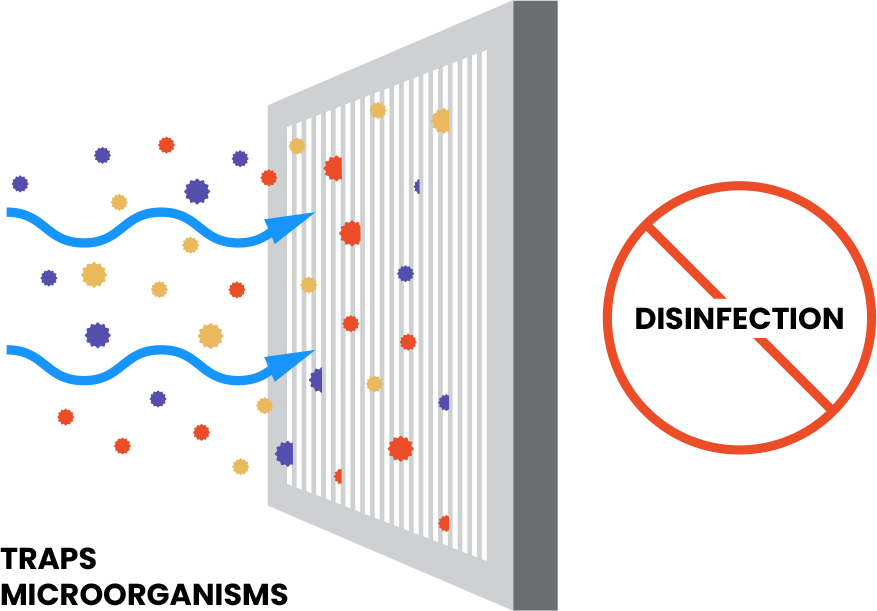
Today, the limitations of HVAC are even clearer
Post-covid, The American Society of Heating Refrigerating and Air Conditioning Engineers (ASHRAE) recommends all buildings meet the same baseline air changes per hour (ACH) level as hospitals, 6 ACH.

All buildings should meet clinical-grade air quality.
Adding a layer of UVC disinfection to your HVAC strategies is a proven, data-driven method to improve indoor air quality standards.
UR-UVGI is the answer.
Together, HVAC and Upper-room UVGI raise indoor air quality with lower costs, more efficacy, and increased sustainability than HVAC improvements alone.
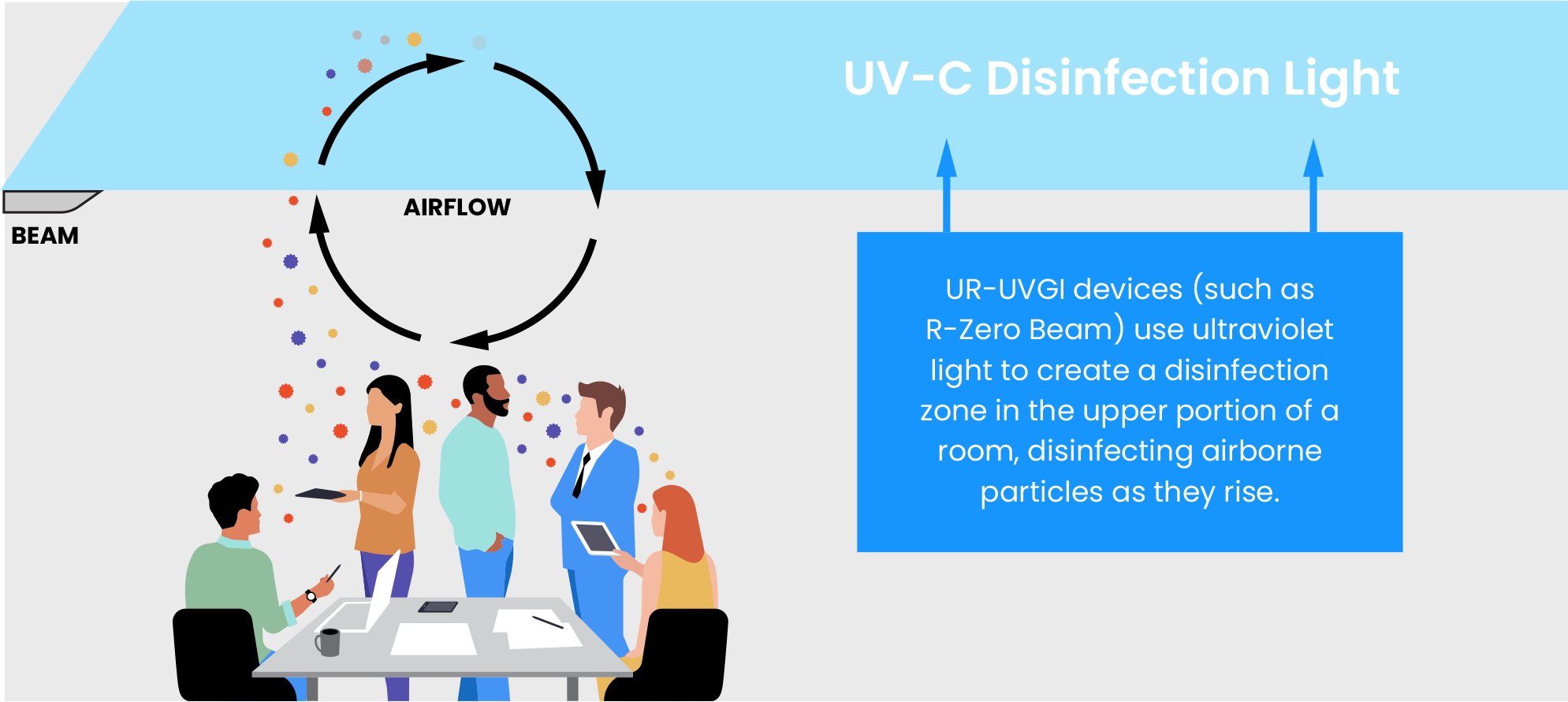
The most cost-effective and sustainable way to improve IAQ
Working together, HVAC systems and Upper-Room UVGI raise indoor air quality standards to where they need to be more economically, sustainably, and effectively than other methods or HVAC alone. In fact, R-Zero’s UR-UVGI device, Beam, uses 93% less energy per air change than HVAC system upgrades would, which means a lower ownership cost and smaller carbon footprint
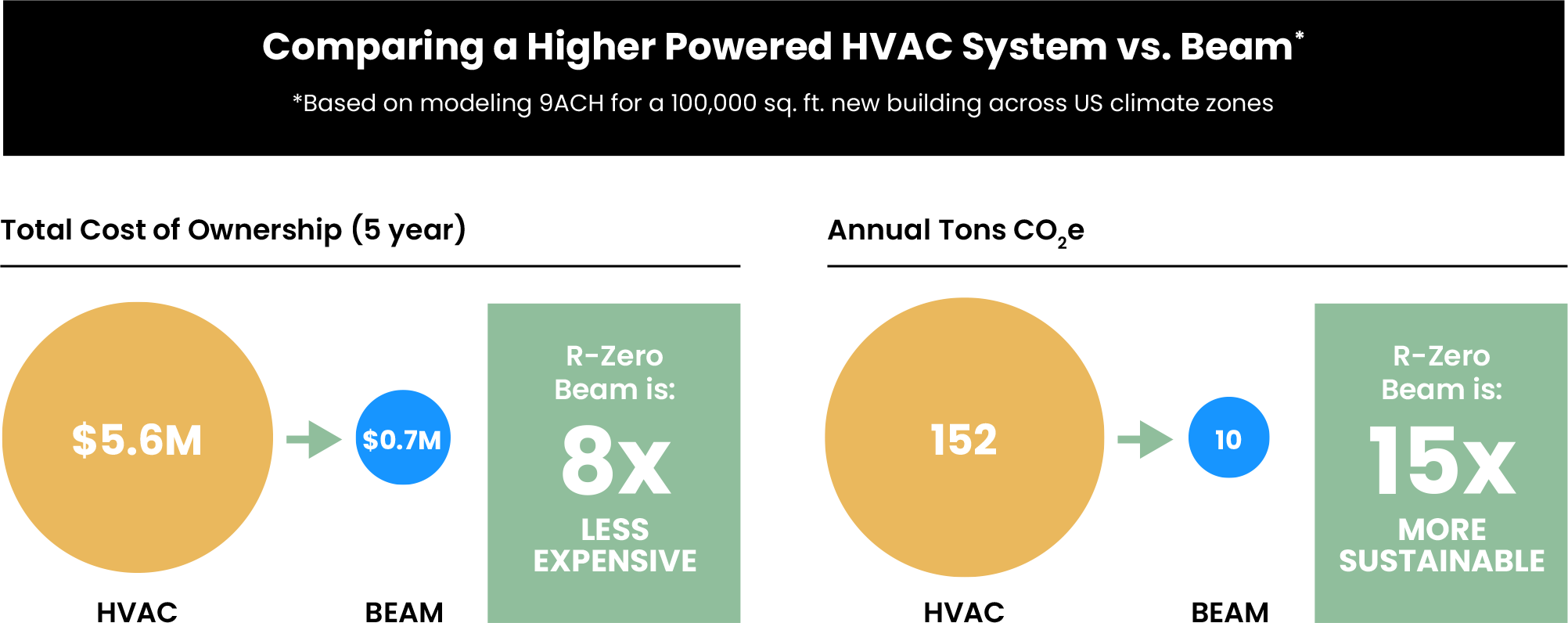
R-Zero Beam uses 93% less energy per ACH than HVAC, yielding lower TCO and a smaller carbon footprint.
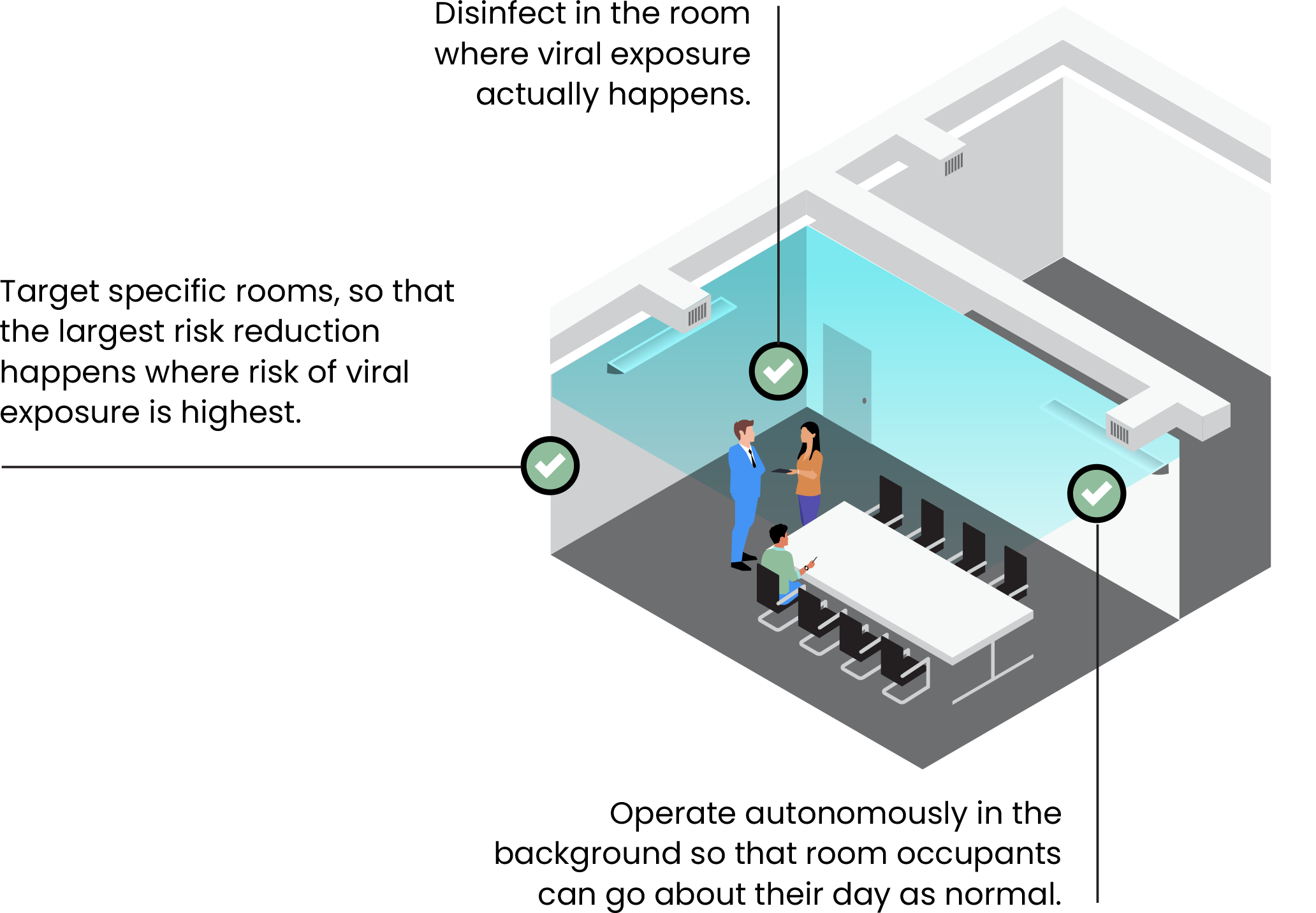

Why HVAC alone doesn’t improve indoor air quality.
HVAC systems were created for air circulation—not disinfection.
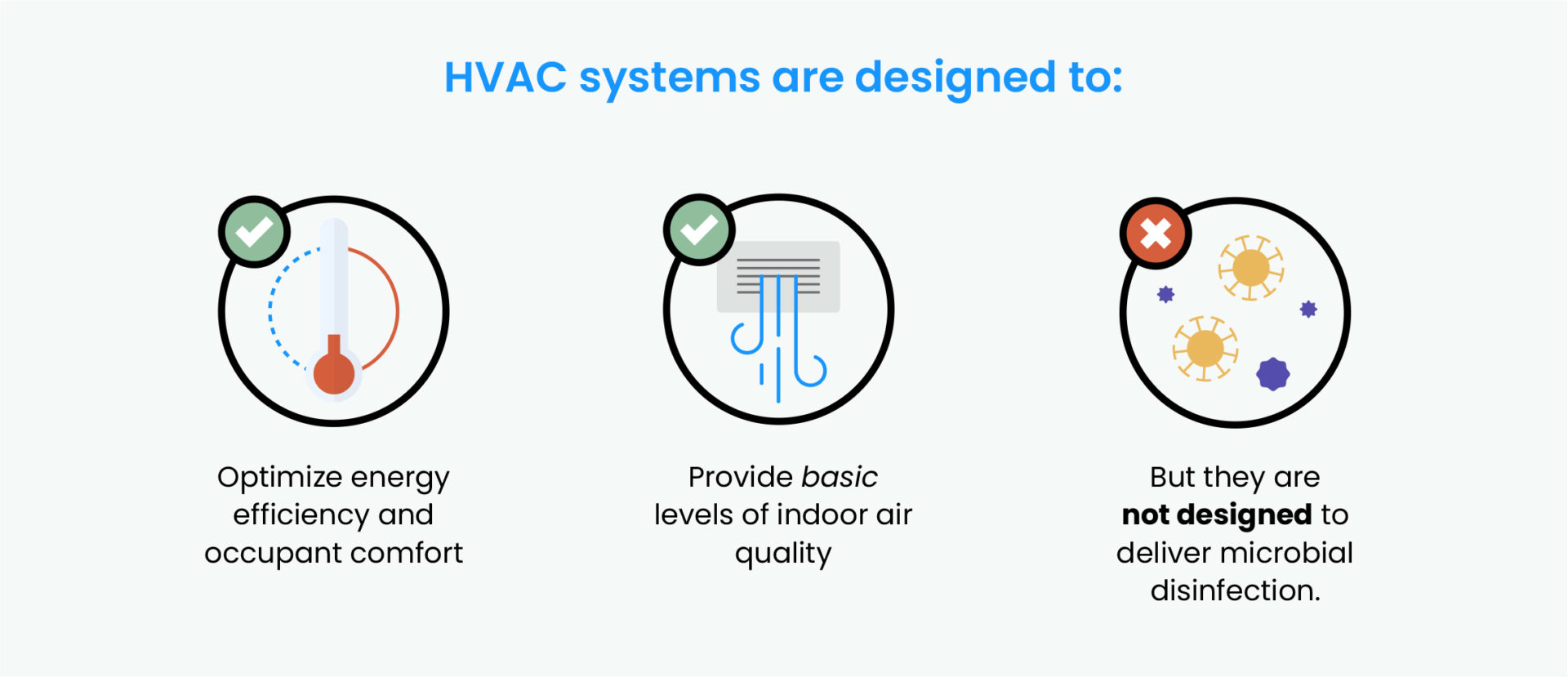
HVAC: thermal comfort raises exposure risk
When it's cold, central air keeps occupants warm. However, as the room fills, body heat naturally warms the space, telling the HVAC system to pump in less air—reducing ACH.
The more people in a room, the higher the need for ventilation. But decreasing ventilation to maintain thermal comfort increases virus and bacteria exposure risk.

For a healthier building, skip the HVAC upgrades.
Healthy spaces begin with improved indoor air quality. However, relying on HVAC to enhance indoor health can lead to increased energy costs, higher GHG emissions, and expensive building upgrades to increase duct size.
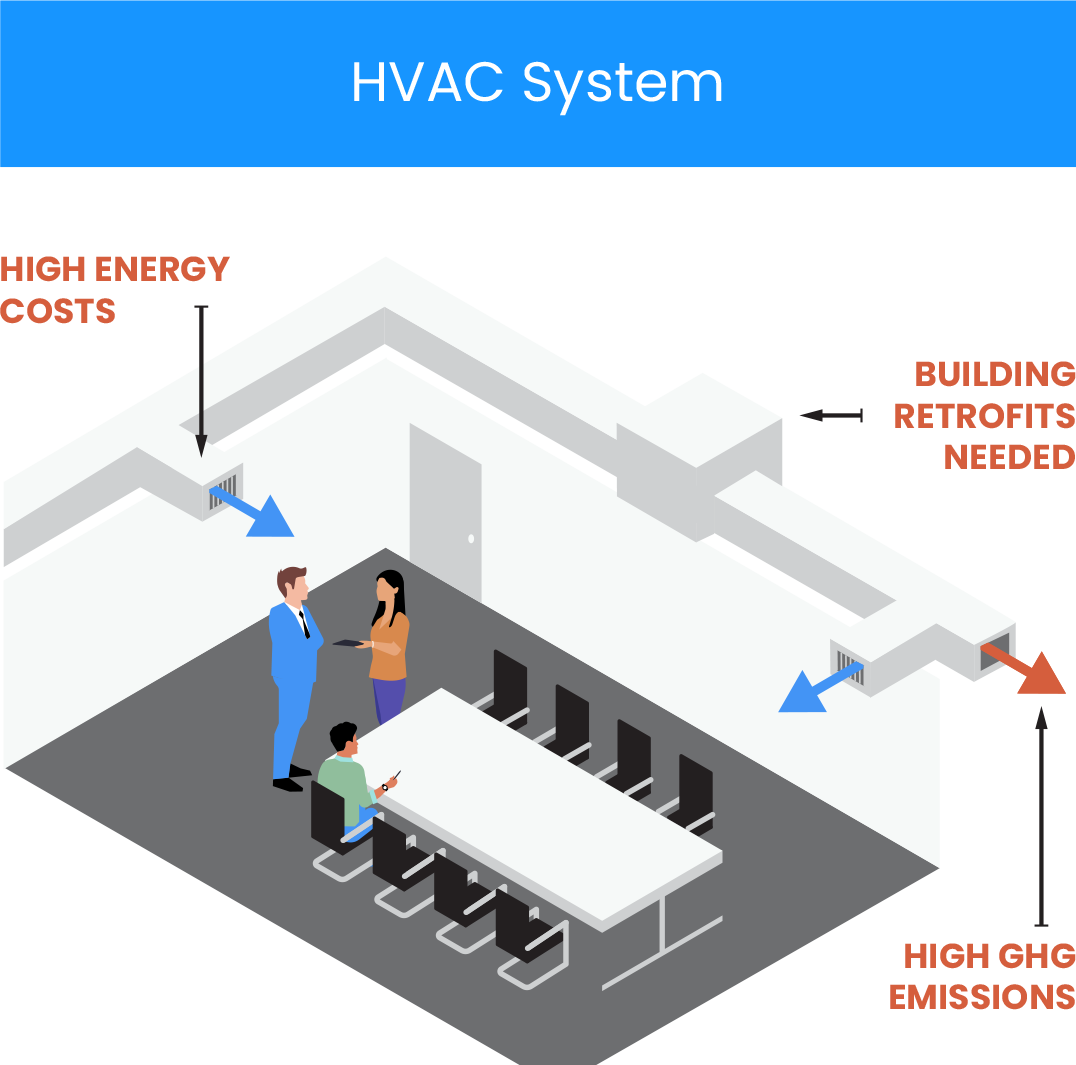
HVAC can’t sense where airflow is needed most.
Indoor virus and bacteria exposure risk starts at the room level. Unfortunately, HVAC systems were never designed to sense which rooms have the highest risk at any given time.

HVAC systems move and store harmful microorganisms—not eliminate them.
Unlike other disinfection methods that kill or deactivate microorganisms in-room, HVAC can only decrease the risk of exposure by pulling them across and out of the room and storing them in disposable filters within the HVAC system.
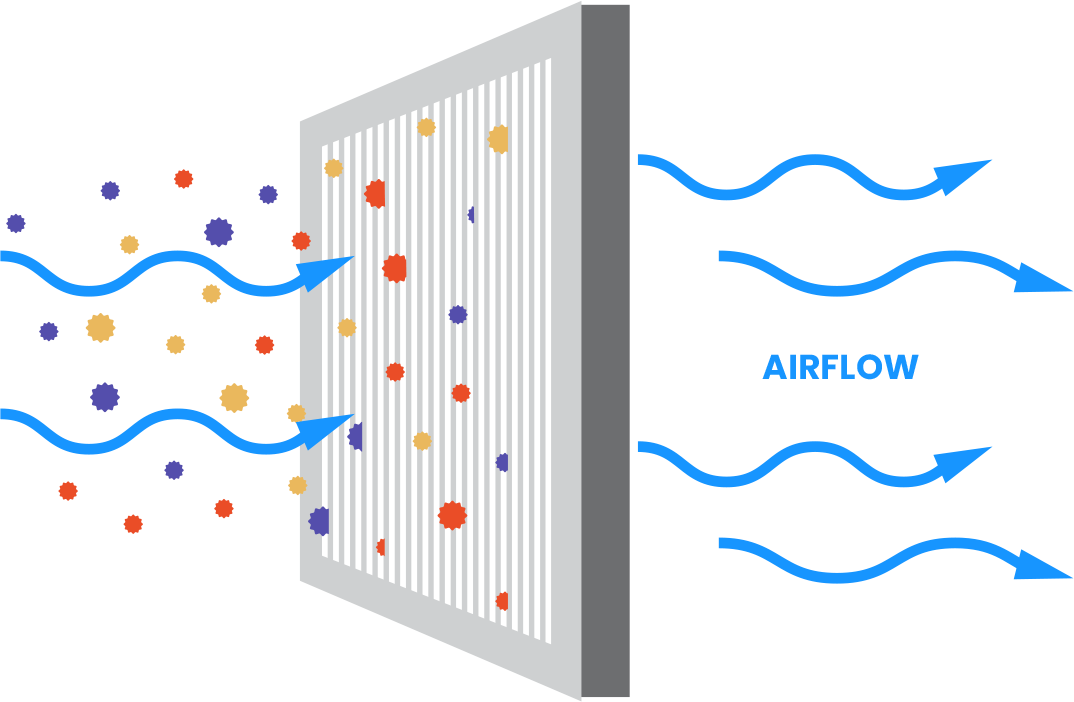
What about other supplements to HVAC systems for improving indoor air quality?
These solutions also fall short on a disinfection level:
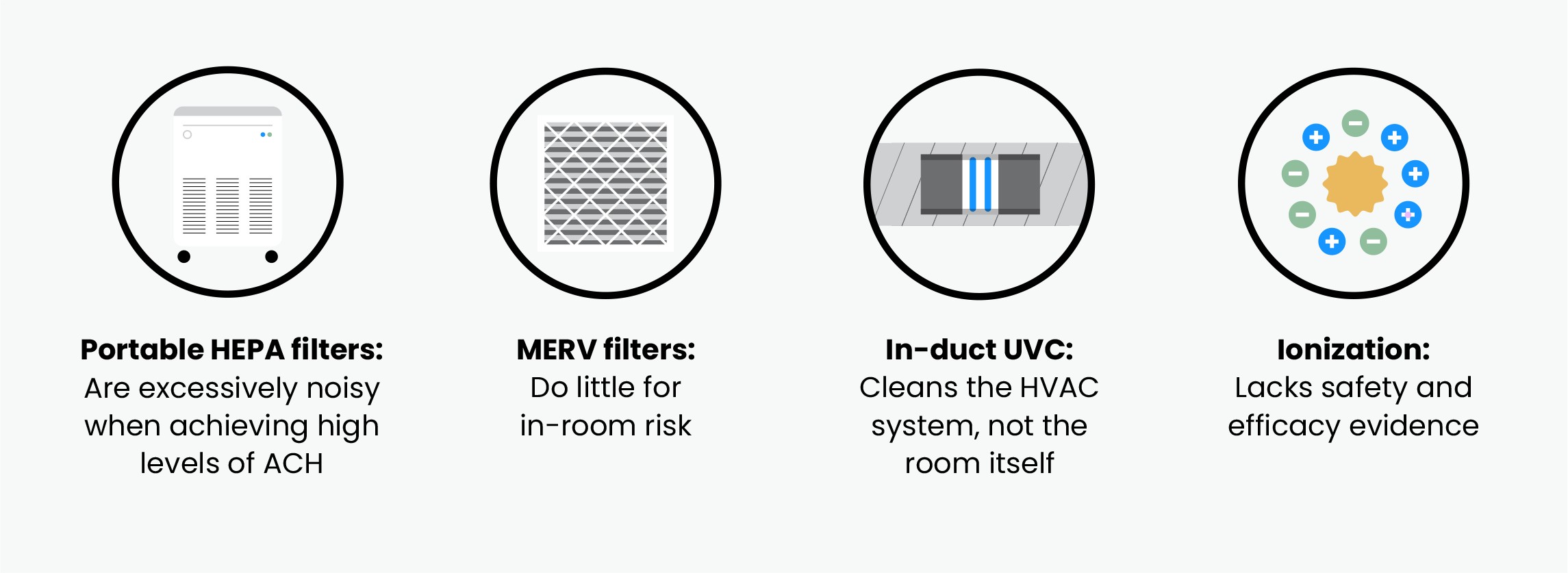
So, what works? UR-UVGI.
Upper-room Ultraviolet Germicidal Irradiation (UR-UVGI) works seamlessly with HVAC to effectively, sustainably, and efficiently provide clinical-grade disinfection levels.
Financial Benefit & Sustainability Calculator
R-Zero’s ecosystem drives dramatic reduction in energy costs, GHG emissions, and lessens the need for harsh chemicals. Find out just how much R-Zero disinfection can help you save money and be more sustainable - everyday.
vs. HVAC
vs. HVAC (tonnes CO2e)
per eACH
Almost there
To get your detailed report simple let us know where to send your results and it will be in your inbox in seconds.

